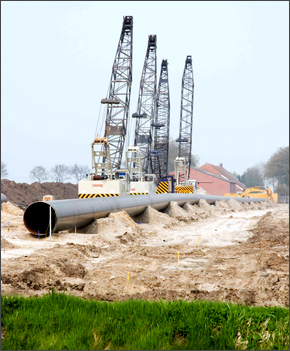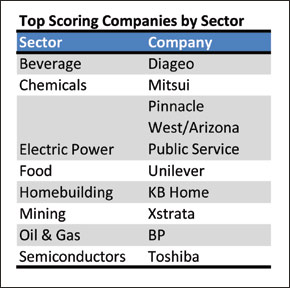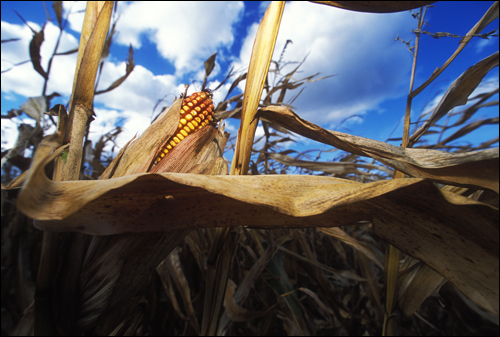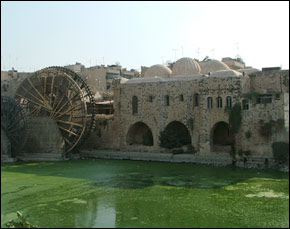States Seek Profit, Regulation from Natural Gas Drilling
Leasing rights to drill for natural gas has plugged budget holes, but opponents argue the fracking process pollutes water supplies.
The U.S. House Energy and Commerce Committee will partner with the Environmental Protection Agency to investigate the effects of hydraulic fracturing on drinking water supplies, Reuters reports. The committee is requesting information from eight energy companies that use the method to drill for natural gas.
Meanwhile the latest budget proposal from Pa. Gov. Ed Rendell includes a tax on energy firms that tap the state’s shale gas reserves, the Philadelphia Inquirer reports. Pennsylvania also plans to earn $180 million for leasing state forest land for natural gas drilling rights, the proposal states.
The tax on the volume and value of the gas produced would raise an estimated $1.8 billion over five years, according to the Inquirer. A similar tax was proposed last year, but the governor removed it because of pressure from the energy industry.
Energy companies are eager to access the large gas reserves trapped in the Marcellus Shale Formation that runs from eastern Kentucky to New York. Reserve estimates range from 168 to 516 trillion cubic feet of gas.
While the tax measure was lauded by environmental groups, the proposed land lease expansion for drilling rights has been less popular. The budget proposal does not specify how many acres would be leased.
“Leasing state forests to balance the budget is the wrong way to go,” Rep. Greg Vitali told the Inquirer.
This would be the third time the state opened its forests to drilling rights in the last three years. The state earned $166 million from leasing 74,000 acres in 2008, and $128 million from leasing 32,000 acres in January 2010, according to the Inquirer. About 692,000 acres of state forest are already leased for gas drilling.
The hydraulic fracturing, also known as fracking, method of releasing natural gas trapped in shale has raised public concern regarding its effect on water supplies. Fracking injects a high-pressure mixture of water, chemicals and sand into wells to break the shale and increase the gas flow. Critics of the process argue that it uses a large volume of water and the wastewater contaminates neighboring wells.
In New York, the Department of Environmental Conservation has banned fracking until it can review the environmental effects. New York City officials have urged a ban on drilling in its watershed because of water pollution risks and new infiltration plant costs.
“The consequences are so severe that it is not a risk that I think we should run,” Mayor Michael Bloomberg said to Reuters. “I do not think that we should allow fractured drilling anywhere near our water supply.”
One New York county has already enacted its own ban. The Onondaga County legislature voted in early February to prohibit drilling until more is known about the environmental consequences, the Post-Standard reports.
Fracking is largely regulated by the state. Energy companies are not required by national law to report the chemical makeup of the fracking fluid-–an exemption to the Clean Water Act and Safe Drinking Water Act granted by the Energy Policy Act of 2005.
But as the issue has gained national attention, Congressional bills have been proposed to regulate the industry.
The Fracturing Responsibility and Awareness of Chemicals Act was introduced in Congress last year, but neither the House nor Senate version has made it out of committee.
If passed, the bill might not have much of an effect because under the Safe Drinking Water Act states have the right to establish their own standards, said Steve Heare, director of the EPA’s Drinking Water Protection Division, to the Wall Street Journal.
Source: Philadelphia Inquirer, Reuters, Post-Standard, Wall Street Journal

Brett writes about agriculture, energy, infrastructure, and the politics and economics of water in the United States. He also writes the Federal Water Tap, Circle of Blue’s weekly digest of U.S. government water news. He is the winner of two Society of Environmental Journalists reporting awards, one of the top honors in American environmental journalism: first place for explanatory reporting for a series on septic system pollution in the United States(2016) and third place for beat reporting in a small market (2014). He received the Sierra Club’s Distinguished Service Award in 2018. Brett lives in Seattle, where he hikes the mountains and bakes pies. Contact Brett Walton












Leave a Reply
Want to join the discussion?Feel free to contribute!